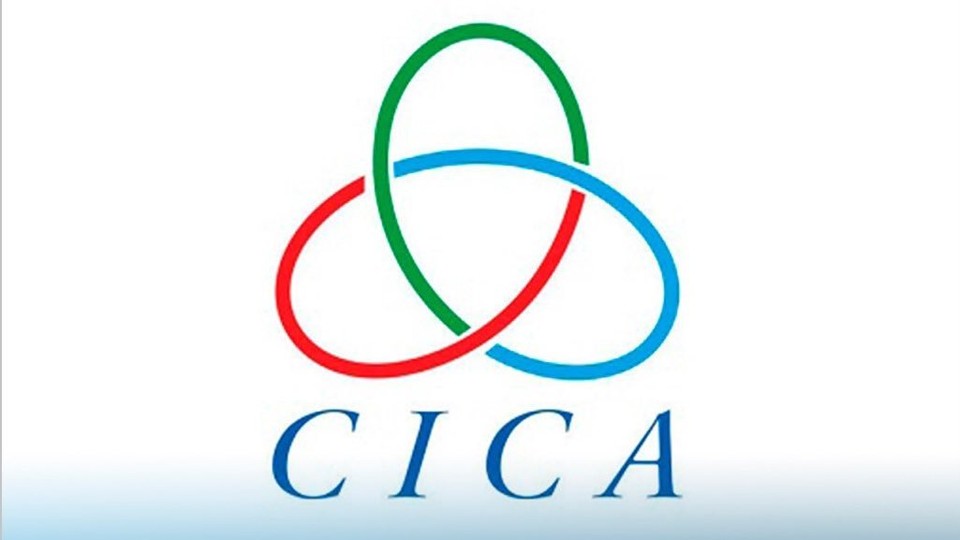Kazakhstan has become an influential player in global diplomacy and the geopolitical landscape due to its prominent role as the chair of the Conference on Interaction and Confidence-Building Measures in Asia (CICA).

Photo credit:gov.kz
Navigating the complexities of the global multilateral setting, Kazakhstan’s diplomatic finesse, strategic vision, and proactive engagement have shaped the trajectory of CICA and positioned the nation as a key player in the broader landscape of international relations.
The recent convening of the CICA Senior Officials Committee (SOC) in Astana provided a comprehensive review of CICA’s achievements in 2023, offering valuable insights into the efficacy of Kazakhstan’s diplomatic leadership. It also shows Kazakhstan’s multifaceted contributions, ranging from economic prowess to diplomatic leadership, underscore its pivotal position in shaping regional dynamics and influencing the broader landscape of global cooperation and understanding.

Muhammad Asif Noor
The CICA chairmanship is a testament to Kazakhstan’s visionary leadership and commitment to fostering regional cooperation. Initiated by Kazakhstan’s first president Nursultan Nazarbayev, in 1992, CICA emerged as a platform for dialogue and collaboration among Asian nations. They are rooted in inclusivity, consensus-based decision-making, and confidence-building measures. CICA aims to address shared challenges and promote peace, security, and stability across the diverse Asian continent. With 28 member countries in the organization, Kazakhstan’s role as the driving force behind CICA’s inception reflects the nation’s dedication to building bridges and fostering understanding in a region characterized by diverse cultures, political systems, and economic structures.
Since its inception, Kazakhstan has shaped CICA into a dynamic and influential multilateral forum. Kazakhstan’s chairmanship of CICA from 2002 to 2004 marked a significant period of growth, where the nation actively worked to enhance the organization’s visibility and effectiveness. Kazakh leadership’s emphasis on pragmatic and results-oriented diplomacy during this period contributed to the development of the Almaty Act. This landmark document articulated the core principles and objectives of CICA. Kazakhstan’s ongoing commitment to CICA is evident in its recent chairmanship from 2022 to 2024, where the nation continues to champion initiatives to reinforce regional connectivity, counter-terrorism cooperation, and sustainable development within the CICA framework.
Kazakhstan’s journey within CICA unfolds as a narrative of visionary leadership and steadfast commitment to fostering cooperative dialogue. The Sixth CICA Summit in Astana in 2022 stands as a watershed moment, where Kazakhstan, under the leadership of President Kassym-Jomart Tokayev, proposed the Astana Statement, advocating for the transformation of CICA into a full-fledged international organization. This proposal, met with unanimous approval, signaled a paradigm shift in the organization’s scope and influence. The subsequent chairmanship of Kazakhstan from 2022 to 2024 further solidified its role as a proactive architect of change within CICA.
The outlined priorities during this tenure ranged from establishing the CICA Council on Sustainable Connectivity to transforming the CICA Finance Summit. The nation’s role in shepherding key planning documents during the recent SOC meeting in Astana underscores its meticulous approach to steering CICA’s course in 2024 and beyond, setting the stage for a promising future of diplomatic collaboration and influence. Under the chairmanship of President Tokayev, Kazakhstan outlined a comprehensive roadmap for the transformation process, setting the stage for a new era in CICA’s evolution. The strategic priorities encompassed a diverse array of initiatives, from establishing the CICA Council on Sustainable Connectivity to transforming the CICA Finance Summit into a permanent platform. The initiatives to bolster economic recovery, regional financial cooperation, and counter-terrorism efforts reflect Kazakhstan’s commitment to address multifaceted challenges.
A critical aspect of Kazakhstan’s influence within CICA is its economic strength, driven by diversification efforts and a focus on critical sectors such as oil and gas, mining, agriculture, manufacturing, and services. Kazakhstan’s status as the world’s largest producer of uranium and its substantial reserves in oil and natural gas have contributed to the nation’s economic growth and positioned it as a key player in shaping regional dynamics through economic diplomacy.
The recent CICA Senior Officials Committee (SOC) meeting in Astana in December 2023 further showcased Kazakhstan’s impact on the organization. The approval of key planning documents for 2024, including the plan for implementing confidence-building measures and the budget of the CICA Secretariat, highlighted Kazakhstan’s meticulous approach to shaping the forum’s annual agenda. One of the essential outcomes of the SOC meeting was the approval of two concept papers in priority areas of environment protection and natural disaster management, reflecting CICA’s commitment to addressing contemporary challenges collaboratively. Additionally, the meeting welcomed a proposal from the Kingdom of Saudi Arabia to join CICA as an observer state, showcasing the organization’s expanding influence and Kazakhstan’s role in facilitating such collaborations. Furthermore, the SOC meeting acknowledged the breakthrough in ratifying the CICA Convention on Privileges and Immunities by Bangladesh, reinforcing the legal framework supporting CICA’s operations.
As Kazakhstan charts its course within CICA, its role extends beyond regional influence to international partnerships. The discussions at the SOC meeting included forging closer ties with international organizations such as the Shanghai Cooperation Organization, the Association of Southeast Asian Nations, and the United Nations Office of Counter-Terrorism. This collaborative approach amplifies Kazakhstan’s position as a bridge between regional and global diplomatic efforts.
Kazakhstan’s role in CICA promises continued influence and proactive engagement. The nation’s commitment to transforming CICA into a full-fledged international organization reflects its aspiration to contribute meaningfully to global diplomacy. The approval of key planning documents, collaboration on concept papers, and the potential expansion of observer states signal Kazakhstan’s intent to shape CICA as a dynamic and influential player in addressing the complex challenges of the Asian continent. Kazakhstan’s leadership in CICA has been marked by visionary initiatives, transformative proposals, and a commitment to fostering dialogue and cooperation.
The author is Muhammad Asif Noor, the director of the Center for Central Asia and Eurasian Studies – Institute of Peace and Diplomatic Studies (Pakistan).
Disclaimer: The views and opinions expressed in this article are those of the author and do not necessarily reflect the position of The Astana Times.

